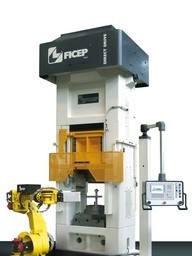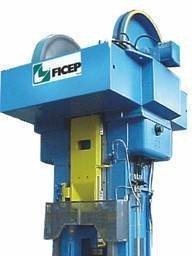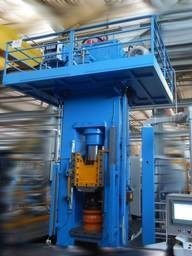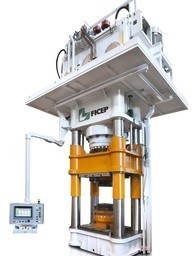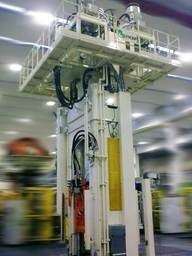-
Over 90 Years
industry expertise
-
Largest
facility & product range
-
Leaders
in the technology market
-
UK Based
service department
Forging Presses
A forging press is a metalworking machine used in cast steel processing for forging and coining mechanical parts from ferrous and non-ferrous metals (steel, aluminium, titanium, brass, copper, etc.). Screw press forging works by applying localised compressive forces at different speeds, depending on the material and specific application.
Screw Presses Type PVS
The PVS series are medium tonnage screw presses with minimal distance between the side frames.These cast steel machines are extremely rugged and productive which makes this model suitable for the forging and coining of mechanical parts of medium-smal lsize ferrous and non ferrous material.
Type PVM
The PVM series are medium tonnage screw presses with minimal distance between the side frames. These tie rod assembled machines are extremely rugged and productive which makes this model suitable for the forging and coining of mechanical parts of medium-small size ferrous and non-ferrous material.
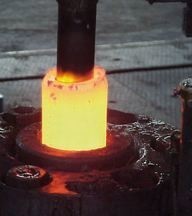
New "Direct Drive" Screw Press with Rotary Linear Motor
This new technology from Ficep extends the long history of Ficep as an established manufacturer of innovative products for the forging industry. This proprietary drive system eliminates the traditional flywheel and brake systems that have historically been part of every mechanical forging press and screw presses.
Features
The proprietary lineal motor drive provides a new degree of simplicity compared to the traditional flywheel systems typical of eccentric forge presses. This new technology provides for the following features:
- Higher impact speed reduces the wear on the dies.
- The production stroke can be reduced and still achieve the required energy.
- Faster cycle time increases the productivity.
- The optimum energy is programmable with absolute accuracy and repeatability.
- Reduced operating energy due to the elimination of energy transfer to a flywheel and the friction brake to stop the ram. The force needed to bring the ram to a stop is converted by the liner motor to energy that can be stored and used for the next forge stroke.
Benefits
- The ability to recover and store energy when the ram is stopped and use that energy for the next cycle has documented overall energy savings of up to 60% while forging identical parts on traditional forging presses.
- Greater machine reliability is achieved by the elimination of numerous mechanical components and wear parts.
- System longevity through the ability to program only the required energy which eliminates the possibility of mechanical overloads on forge tools and the press.
